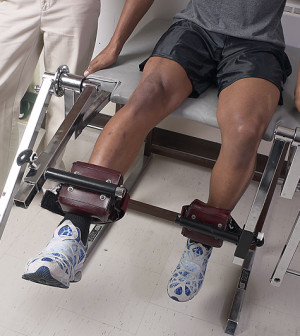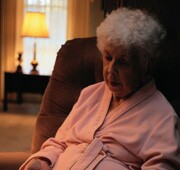- Are You Making This Expensive Thermostat Error This Winter?
- Recognizing the Signs of Hypothyroidism
- 10 Strategies to Overcome Insomnia
- Could Artificial Sweeteners Be Aging the Brain Faster?
- Techniques for Soothing Your Nervous System
- Does the Water in Your House Smell Funny? Here’s Why
- Can a Daily Dose of Apple Cider Vinegar Actually Aid Weight Loss?
- 6 Health Beverages That Can Actually Spike Your Blood Sugar
- Treatment Options for Social Anxiety Disorder
- Understanding the Connection Between Anxiety and Depression
Sleep Apnea May Be Linked to Poor Bone Health


People with sleep apnea, a common sleep disorder, may be at increased risk for the bone-thinning disease osteoporosis, especially women and older people, a new study suggests.
Sleep apnea causes repeated, brief interruptions in breathing during sleep. Untreated sleep apnea can increase a person’s risk of heart disease, heart attack and stroke.
“Ongoing sleep disruptions caused by obstructive sleep apnea can harm many of the body’s systems, including the skeletal system,” said study co-author Dr. Kai-Jen Tien, of Chi Mei Medical Center in Tainan, Taiwan.
“When sleep apnea periodically deprives the body of oxygen, it can weaken bones and raise the risk of osteoporosis,” Tien said. “The progressive condition can lead to bone fractures, increased medical costs, reduced quality of life and even death.”
For the study, published April 15 in the Journal of Clinical Endocrinology & Metabolism, researchers analyzed the medical records of nearly 1,400 people in Taiwan diagnosed with obstructive sleep apnea between 2000 and 2008. They compared them with more than 20,600 people who did not have the sleep disorder.
Over six years of follow-up, people with sleep apnea were 2.7 times more likely to be diagnosed with osteoporosis. The risk for the bone-thinning disease was highest among women and older people with sleep apnea, according to the study.
“As more and more people are diagnosed with obstructive sleep apnea worldwide, both patients and health care providers need to be aware of the heightened risk of developing other conditions,” Tien said in a journal news release. “We need to pay more attention to the relationship between sleep apnea and bone health so we can identify strategies to prevent osteoporosis.”
However, the study only noted an association between sleep apnea and osteoporosis. It does not prove that one causes the other.
More information
The U.S. National Heart, Lung, and Blood Institute has more about sleep apnea.
Source: HealthDay
Copyright © 2026 HealthDay. All rights reserved.










